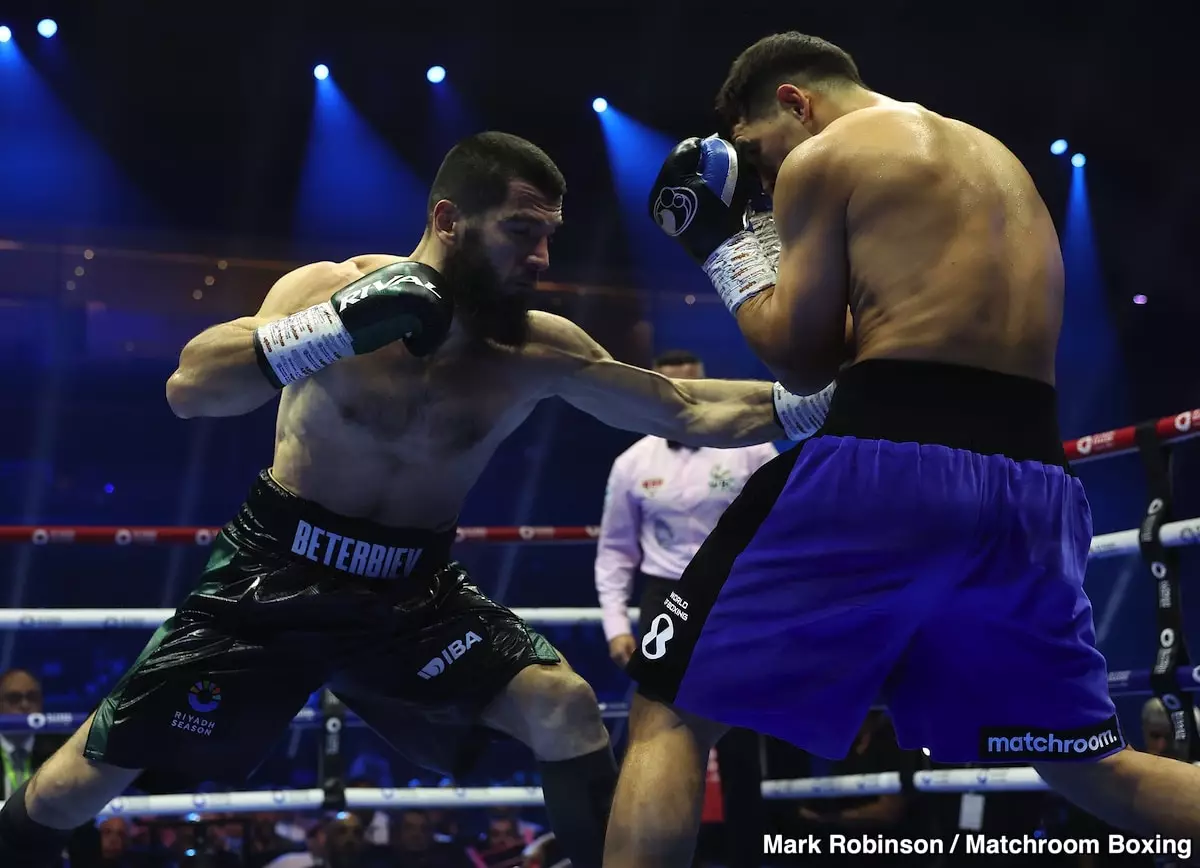In the high-stakes world of boxing, strategy extends beyond the ring and into the realm of opponent selection and fight timing. The recent comments by Sergio Mora regarding David Benavidez’s approach to facing the undefeated light heavyweight champion Artur Beterbiev illuminate a common tactic employed by fighters: the notion of “aging out” an opponent. Mora’s assertion that Benavidez should wait for Beterbiev, who will celebrate his 40th birthday in January, brings to light not only the philosophical underpinnings of boxing strategy but also the precarious balance between respect and opportunism.
To “age out” a fighter refers to a strategic decision wherein a challenger chooses to delay facing a formidable opponent until the latter’s performance diminishes with age. This idea isn’t groundbreaking; in fact, it has been a longstanding practice in boxing history. The strategy hinges on the understanding that physical abilities can wane, and even the most accomplished champions can become vulnerable as they advance in years. Mora’s perspective emphasizes that it is not uncommon for fighters to face opponents who are past their prime, suggesting that Benavidez could strategically time his entrance into a bout with Beterbiev for maximum odds of success.
However, the ethical implications of this tactic cannot be ignored. While boxing is indeed a business requiring fighters to make calculated decisions for their careers, waiting for a champion to become less competitive before issuing a challenge may elicit criticism. Mora himself recognizes the potential ridicule Benavidez might face if he is perceived as waiting for Beterbiev to “age out.” It raises the question: should fighters prioritize their careers over the spirit of competition?
As the WBC interim light heavyweight champion, Benavidez is on a path to potentially challenge Beterbiev, assuming he secures a victory against WBA ‘regular’ champion David Morrell on February 1st. This match is pivotal in establishing Benavidez’s standing for a title shot against the winner of the anticipated rematch between Beterbiev and Dmitry Bivol later this year. Morales stresses that the fight between Bivol and Beterbiev is crucial for determining the dynamics of the light heavyweight landscape.
In this context, Mora’s comments about the danger Beterbiev represents carry significant weight. Beterbiev’s impressive fighting ability, characterized by a style that thrives in close-range brawling, poses a serious threat to Benavidez. The risks associated with moving up in weight must be weighed against the potential for success. As such, Mora posits that Benavidez should carefully consider the timing of his ascent to claiming a title belt from a champion known for his relentless aggression.
Beterbiev, with an impressive record of 21 wins (20 KOs) and no losses, is often regarded as one of the most dangerous fighters in boxing today. His combination of power, technical skill, and experience makes him a formidable opponent for anyone who dares to step into the ring with him. For many boxing analysts—including Mora—Beterbiev’s reputation adds an additional layer of complexity to the already intricate negotiations surrounding future matches.
If Benavidez were to delay his matchup against Beterbiev, he risks allowing an opportunity to slip away. Boxing is an unpredictable realm where factors such as age, injury, and form can alter the prospects of a fight. While waiting can create advantageous conditions, it can also result in the missed chance to secure a legacy-defining victory against a legendary champion.
Ultimately, the question of whether to wait for an opponent to age out reflects a broader conversation within the sport about the ethical responsibilities of fighters. Should one prioritize personal ambition and career longevity at the expense of facing the very best? The tension between tactical foresight and genuine competition continues to shape the narratives of boxing’s greatest rivalries.
The future will tell whether Benavidez will heed Mora’s advice, but one truth remains clear: in the world of boxing, strategy is paramount. The delicate dance of timing, opportunity, and respect will always be relevant as fighters navigate the complex terrain of competition. Whether aging out is a legitimate strategy or a questionable tactic is a debate that will endure long after the final bell has rung, and champions will have to decide for themselves where they stand in this intricate web of sport and strategy.


Leave a Reply